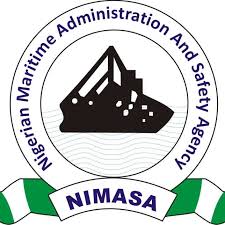The National Bureau of Statistics, NBS and the Nigerian Maritime Administration and Safety Agency, NIMASA, are currently in talks on how to aggregate and calculate the maritime and shipping sectors’ contribution to the nation’s Gross Domestic Product, GDP.
Stating this in Lagos weekend, Dr. Dakuku Peterside, NIMASA’s Director-General, said that the contribution of the sector is presently scattered across different segments of the transport, trade and other sectors’ contribution to the GDP.
He said the ongoing discussion aims to capture the comprehensive segments of the maritime industry including Customs’ collections at the ports into a single contribution to the GDP when it eventually takes off.
He explained that it was the hope of the agency that all maritime and shipping activities will be captured in the database of the NBS.
Meanwhile, at the backdrop of delays vessel turnaround time at the Nigerian ports as well as the huge debt owed the NIMASA by shipping companies, the agency has introduced its a new ship billing system called the Final Billing System, so as hasten the preparation of shipping services bills.
Listing the major landmark achievements of the agency in 2019 Peterside said before now, shipping companies and their agents would have in their books unending NIMASA’s bill adding that most of these bills were not reconciled for a very long time.
He also said the introduction of the new billing system has reduced vessel dwell time, under-invoicing, over-invoicing and inappropriate invoicing.
According to him, under the new system shipping firms can now close their books on any particular ship delivery within two weeks.
He stated: “The introduction of the Final Billing system has put to rest the issues of double billing and over under billing with the creation of a platform for dispute resolution. The system ensures appropriate closure on all vessel transactions within a period of two weeks after departure. This has led to improved customer satisfaction.
“Before now shipping companies and their agents will have in their books unending NIMASA’s bills either it’s a staled form, under billing, over billing and more often these bills are not reconciled for a very long time.
“The first thing the new final billing system has done is that it has helped to reduce dwell time in our ports. When a vessel comes, that vessel cans leave once her agent signs an undertaking, the agent will not stop doing business because of the single vessel.
“The agent cannot sign another undertaking if the first one has not been reconciled.
“If you look at the impact on the economy when a vessel gets stuck for days just because it was not given a sailing clearance, off-course, it will start paying demurrage, it will continue paying the Nigerian Ports Authority, NPA, charges for berthing space.
“It has cut down vessel dwell time, improved vessel turnaround time. The second one is that it enables you to close the books within two weeks
“Many people will recall that before now with regards to the three percent freight charge, sometimes it takes between five and ten years to reconciled shipping company’s accounts.
“So at any point in time shipping companies were always indebted to NIMASA, the newly introduced final billing system has an end to that and this has ensured the immediate closure of all vessel transactions within two weeks after departure.
“So within a short window, the shipping companies close their books and NIMASA also close their books and under the current vessel can get sailing clearance within 24 hours.
“As a regulatory and enforcement agency, we are committed to ensuring that our core mandates are accomplished in such a manner that will provoke economic development for Nigeria while growing indigenous capacity in line with international best practices.”

